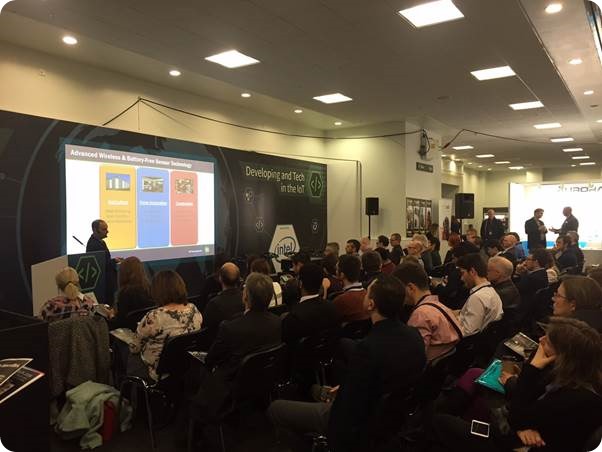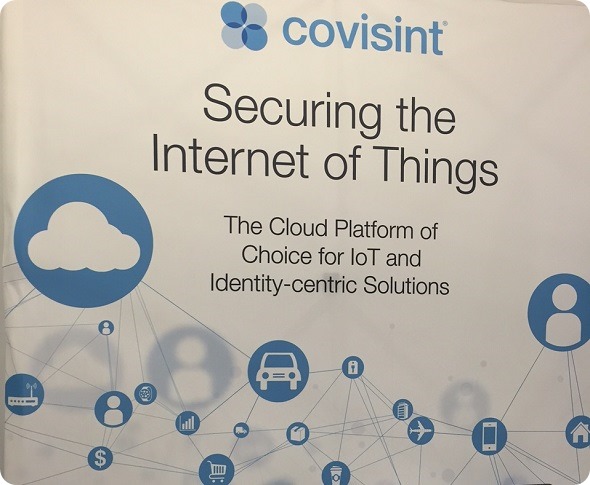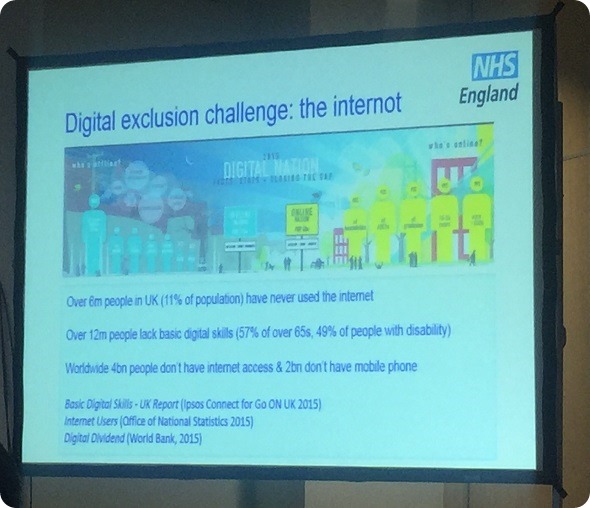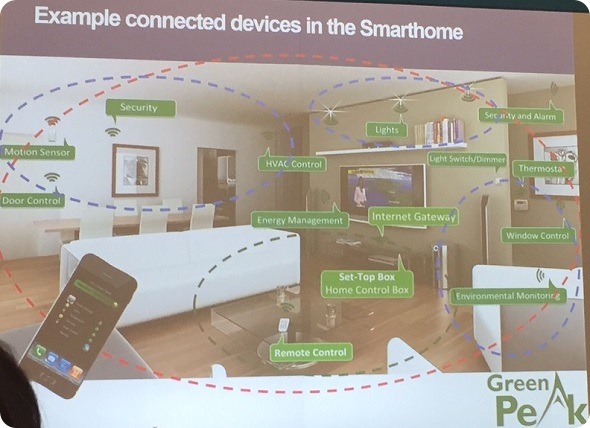It was clear from IoT Tech Expo Europe 2016 that the Internet of Things has the potential to transform not only healthcare but the way we live our lives.
But what actually is IoT? Definitions vary, but in essence it involves the transfer of data between consumers, systems and devices.
You may already be more familiar with IoT than you think. Ever used a smart TV to download films online for example?

The potential of IoT to impact healthcare is wide ranging. We've already seen an increasing movement towards fitness tracking wearables over the last few years. Imagine a world where your vital signs were being constantly monitored and fed back to your healthcare professional.
Such wearables can't come too soon for patient expert David Festenstein, who spoke of his life-changing experience of having a stroke and his remarkable recovery. Despite this, David talked of his anxiety over a potential future stroke and how he'd feel much more comfortable if he was being monitored and thereby could be alerted should symptoms start to indicate history repeating itself.
Putting patients at the heart of IoT of the future was at the core of IoT Tech Expo both from the speakers and the audience questions. Jacqui Taylor, CEO of Flying Binary, described how we're still focussed on a consumption model, whereas a self-care and preventative model is what's needed.
David Doherty, co-founder of 3G Doctor, emphasised how we need to empower patients with their own data and in doing so could lie the opportunity for preventative medicine.
Dr Shafi Ahmed, Consultant General, The Royal London and St Bartholomew's Hospital, also discussed ways IoT could minimise or save costs for the NHS. Just like telephone appointments already in primary care, Dr Ahmed envisions a future where the outpatient process could be done remotely.
Why hasn't this happened already you may wonder? There are many examples of great work being done according to Dr Ahmed, however, this has traditionally been in small pockets. He hopes that the NHS, who are becoming increasingly accepting of innovation, will help to make this easier moving forwards.
Privacy is a big issue in the IoT space. Brad Schechter at Covisint talked to News-Medical about managing people's access to trusted information and the importance of knowing who has access to what.

Similarly Kimia Salehi at Medopad outlined the restrictions in hospitals of sharing patient data, such as images between healthcare professionals, and how their approved platform overcomes such problems.
Bob Gann, NHS England discussed further barriers including the sensitivity of health information and thereby concerns over data security; the uncertain environment of some apps being classed as medical devices and therefore requiring the relevant approval; finally the current lack of good evidence on the benefits of wearables.
Perhaps the most shocking part of Bob's talk was the amount of people who aren't connected in our society, or the "internots" as he described them.

The digital divide in the UK is huge, with 6 million people (11% of the population) never having used the Internet before. Over the last 3 years, Bob and his team have been working to support people to get online in libraries, homeless shelters, pubs and even chip shops! So far they've reached 300,000 digitally excluded individuals.
Richard Marsh at Draper Esprit discussed another type of chip more commonly associated with IoT in his overview of venture capitalism in the IoT space. With Draper Esprit's typical investment of 5-10 million, and internet-connected devices in homes already averaging around 5-10 devices, such as laptops, smart TVs etc., it's clear to see this is an exciting area not just for healthcare but for life as we know it.
